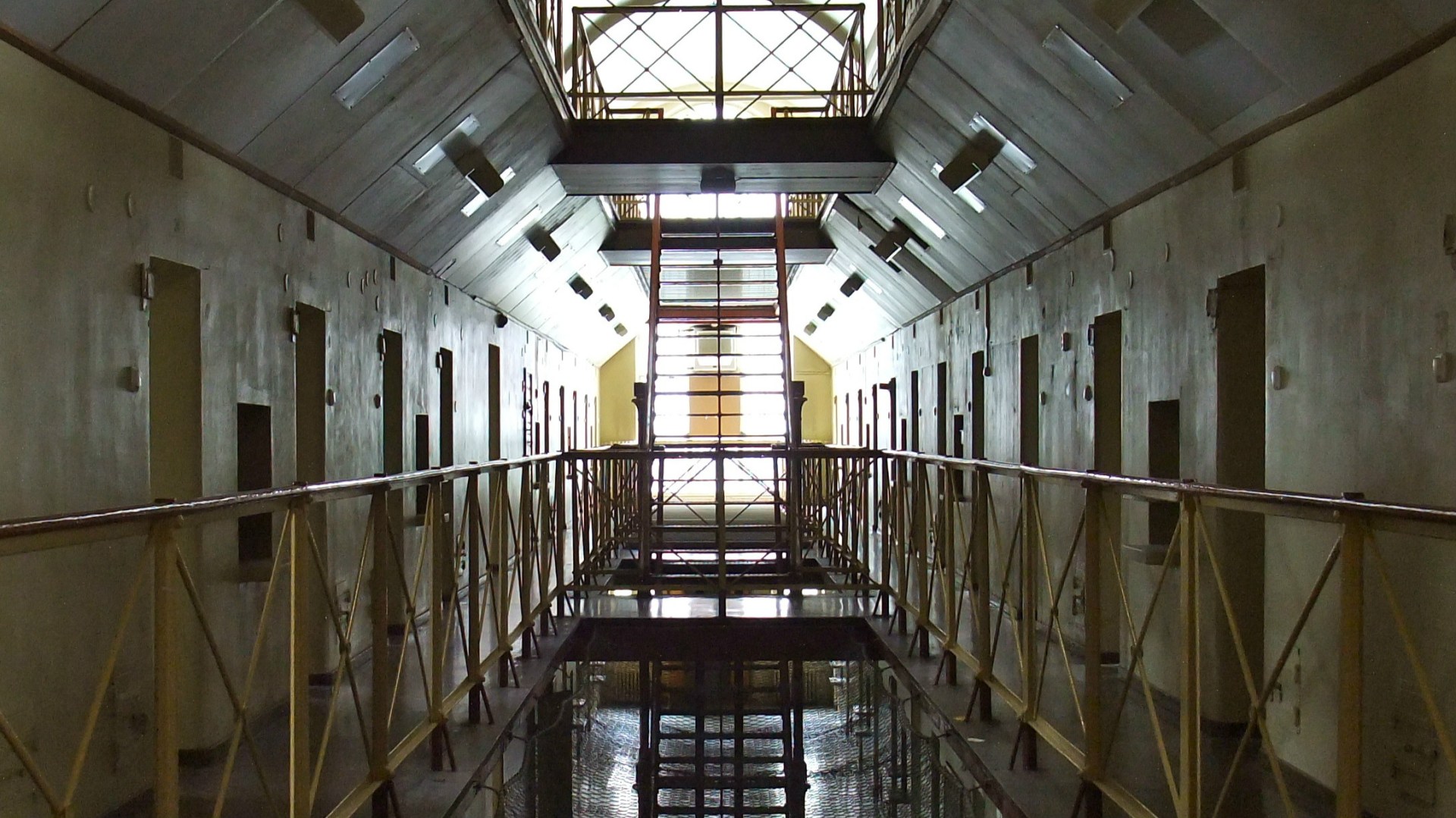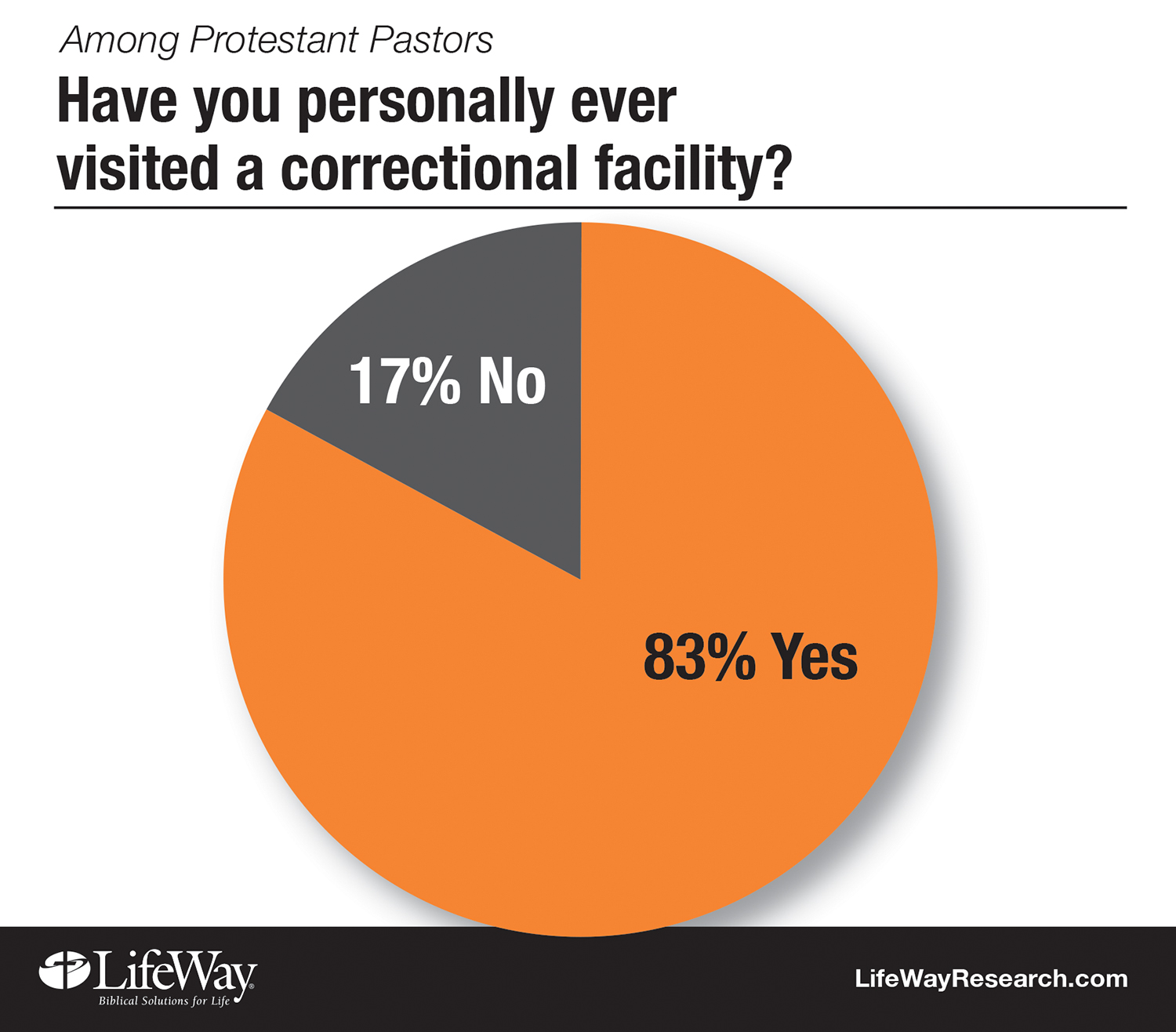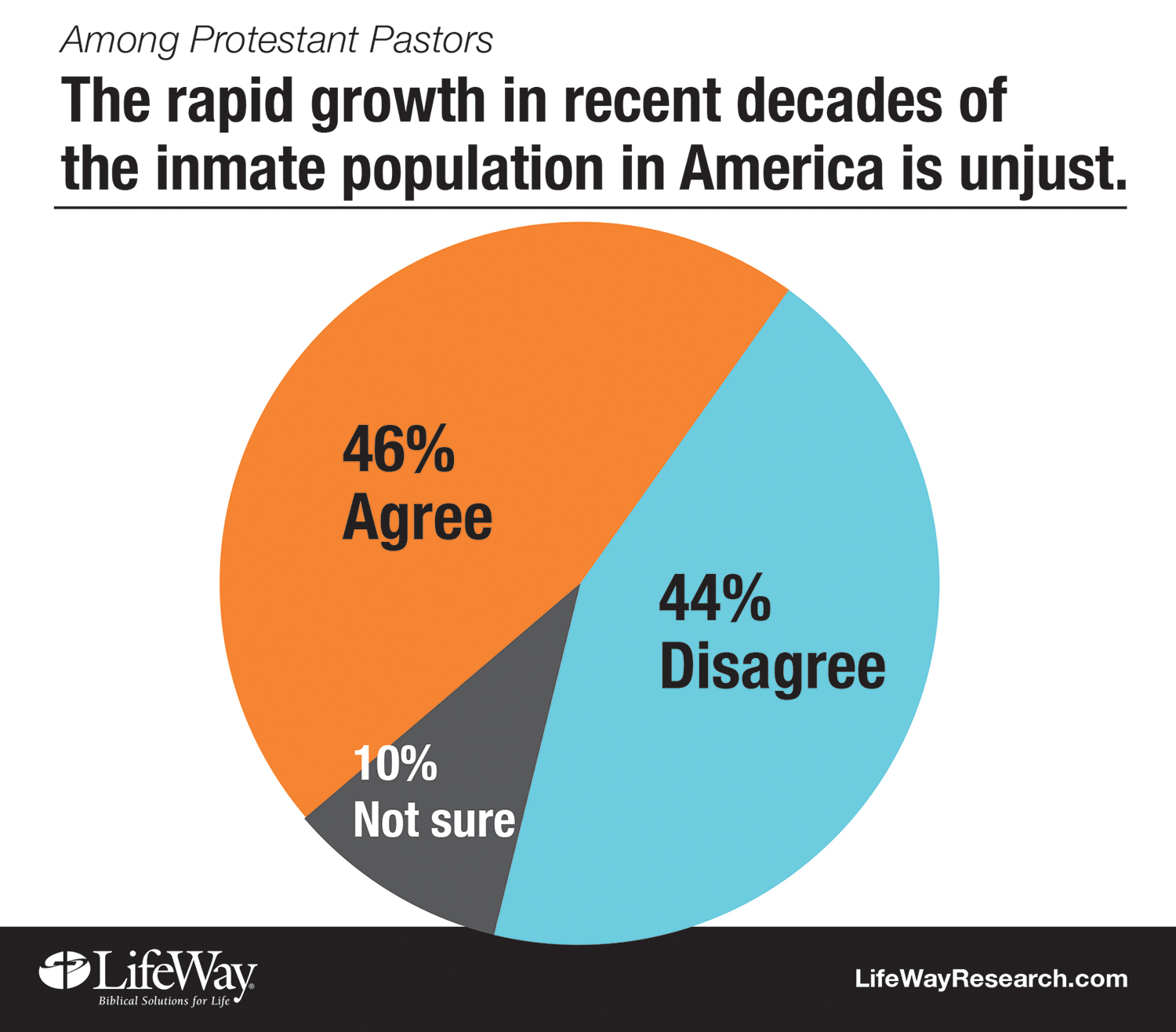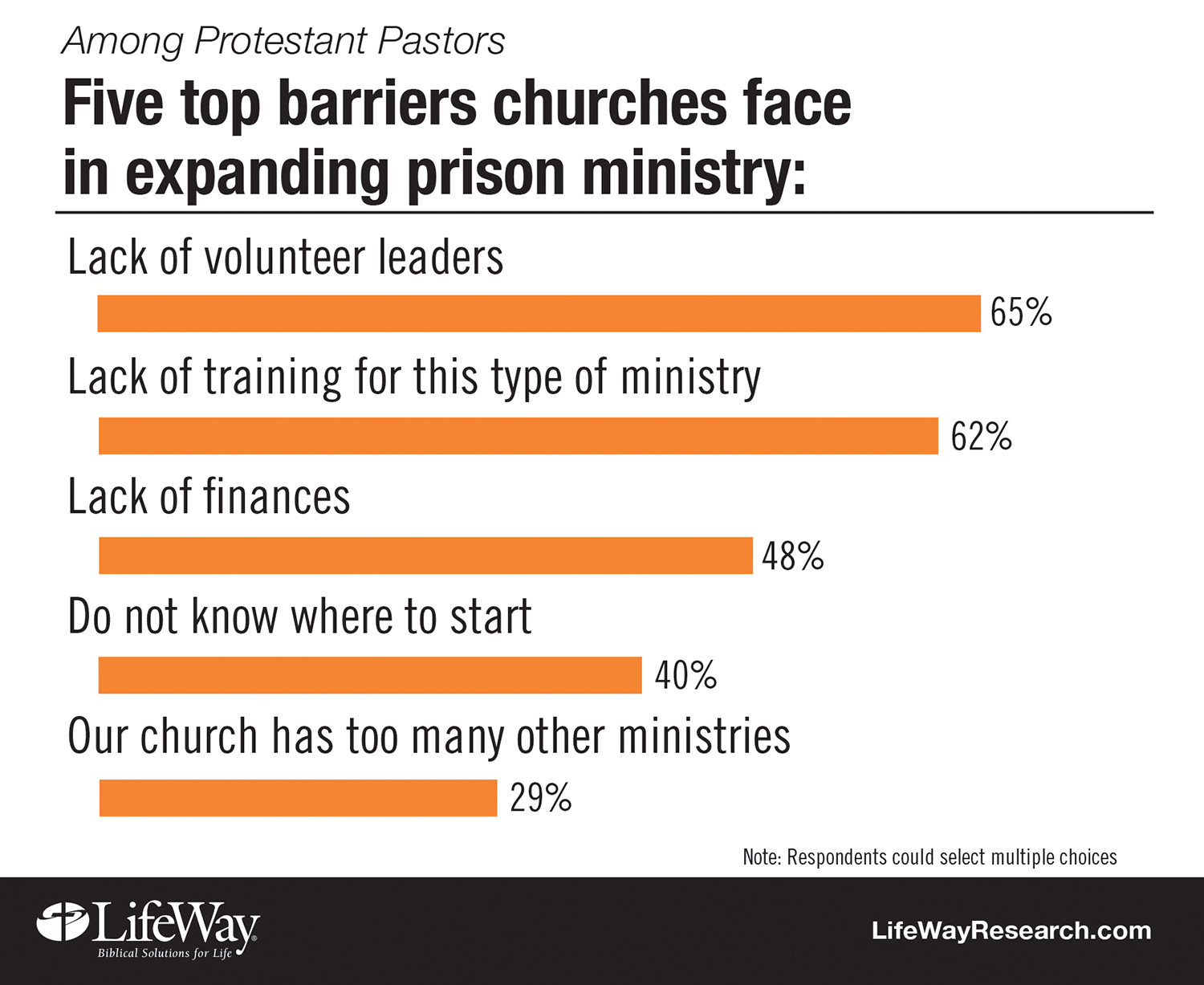Most Protestant pastors have been to jail to see someone. And most want to help prisoners and their families.
But their churches often lack the training or finances to run an effective prison ministry. So instead, the work is primarily done informally by individuals in the congregation.
Those are among the findings of a new phone survey of 1,000 Protestant senior pastors from LifeWay Research.
Researchers found widespread support among pastors for the idea of prison ministry. Four out of five pastors (83%) have visited a correctional facility. And almost all believe churches should help the families of those incarcerated (97%) and provide care for those getting out of jail (95%).
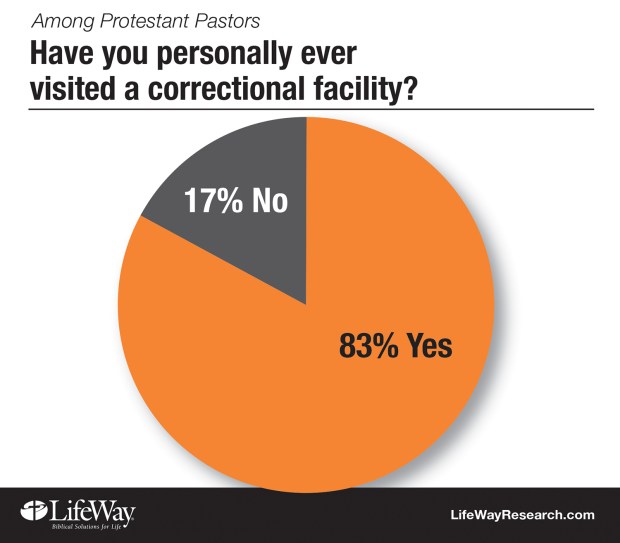
However, many pastors have little contact with those who have been incarcerated. Half of pastors say no one from their congregation has been jailed in the past three years. A third have seen one or two people from their church go to jail. One in six say three or more attendees have been jailed in that time (17%).
About a third of pastors say no former inmates attend their church (31%), one or two former inmates attend (36%), or three or more former inmates attend (33%).
Overall, few pastors have contact with current or former inmates as a normal part of their ministry, said Scott McConnell, vice president of LifeWay Research. So prison ministry isn’t a priority.
“When half the pastors haven’t had someone from their church sent to jail, then prison ministry isn’t on their ministry radar,” he said.
Incarceration rates in the United States remain at record levels. More than 2.2 million Americans are held in state and federal prisons or local jails, according to the Institute for Criminal Policy Research. That’s more than any other nation in the world.
Though about 13 percent of Americans are black, more than a third (36%) of inmates in state and federal prisons are African American, according to the Department of Justice.
Those statistics have led to concerns about the high number of black inmates and charges of racial disparity.
LifeWay Research found pastors are split on those two questions.
Half of pastors say the racial disparity among inmates is unjust. Four in 10 disagree (39%). One in 10 is not sure (11%).
Just under half say the rapid growth of the inmate population is unjust (46%). A similar number (44%) disagree. The remaining 10 percent are not sure.
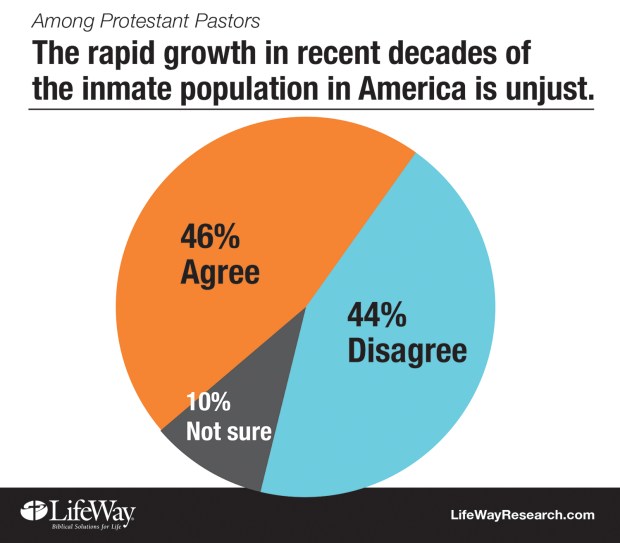
African-American pastors (78%) are most likely to say the rapid growth in the overall number of inmates is unjust. Most Methodist (67%) and Presbyterian/Reformed pastors (72%) agree. Fewer Baptist (31%), Pentecostal (34%), Christian/Church of Christ (39%) and Lutheran (45%) pastors hold that view.
African-American pastors (88%) are also most likely to see racial disparities among inmates as unjust. Most Methodist (73%) and Presbyterian/Reformed (75%) pastors agree. Fewer Baptist (34%), Pentecostal (43%), Church of Christ/Christian (40%) and Lutheran (56%) pastors agree.
Karen Swanson, director of the Institute for Prison Ministries at Wheaton College, said pastors often don’t know how to start ministering to inmates.
Other ministries, like distributing school supplies to kids or volunteering at a food pantry, are relatively easy to start, she said. But ministering to inmates and their families is more difficult, requiring special training and often a long-term commitment from volunteers.
About two-thirds of pastors cite a lack of training (62%) or volunteers (65%) as barriers to their churches helping inmates and their families. Others say they don’t know where to start (40%), their church is involved in too many other ministries (39%), or they don’t see a need for it (21%).
Money is an issue as well. Half of pastors say a lack of finances is a barrier to ministry (48%). A recent report from the Evangelical Council for Financial Accountability found donations to prison ministries declined 6 percent from 2011 to 2014.
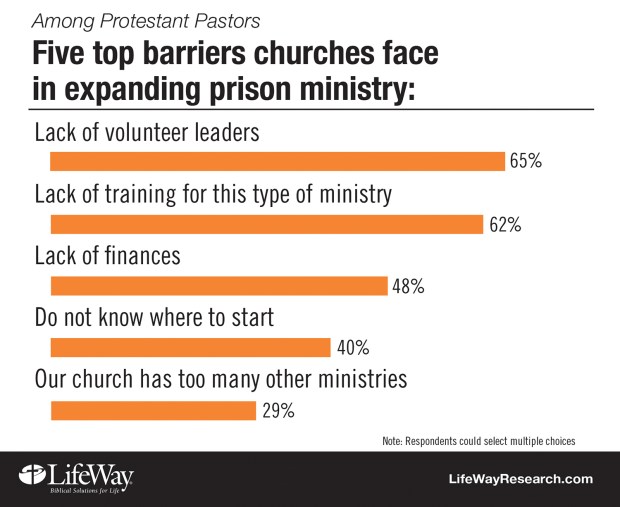
When churches do have a prison ministry, it is often run on an informal basis.
- 61% of pastors say individual church members minister to families of inmates.
- 58% say church members help people leaving correctional facilities.
- 45% say church members minister in correctional facilities.
McConnell said churches face an uphill battle to grow their prison ministries.
“These are messy, long-term ministries,” he said. “You really have to demonstrate biblical faithfulness to be involved with them. It’s a lot easier to pick a ministry where there are quick rewards, but you would miss out on the opportunity to impact families and communities.”
Methodology: The phone survey of Protestant pastors was conducted March 9-24, 2016. The calling list was a stratified random sample, drawn from a list of all Protestant churches. Quotas were used for church size and Black Protestant denominations. Each interview was conducted with the senior pastor, minister or priest of the church called. Responses were weighted by region to more accurately reflect the population. The completed sample is 1,000 surveys. The sample provides 95 percent confidence that the sampling error does not exceed plus or minus 2.5 percent. Margins of error are higher in sub-groups.
The study was sponsored by the Institute for Prison Ministries, Billy Graham Center for Evangelism, Wheaton College; Correctional Ministries and Chaplains Association, Assemblies of God; and the Crossroad Bible Institute.
LifeWay Research is a Nashville-based, evangelical research firm that specializes in surveys about faith in culture and matters that affect the church.

